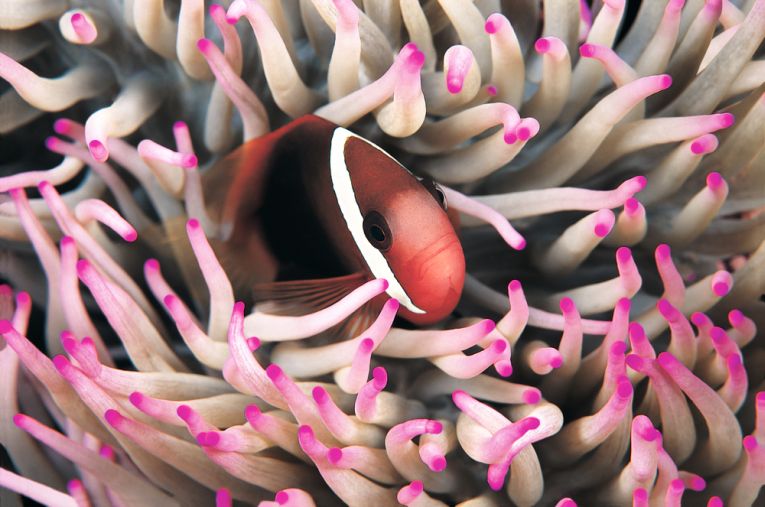As the carbon dioxide concentrations in the oceans increases, it's not only the calcium in seashells that is affected by the acidity. Early life as a larva holds many challenges connected to a high surface area/volume ratio and undeveloped physiologies. So far, the lowered sensory ability and behavioural changes of young animals has been found to be the prime effect. The populations of some species' larvae are selecting habitat, timing their settlement and interacting with predators wrongly. The overall problem lies in reduced populations of these species.
Bridie JM. Allan and her co-workers from James Cook University and Istituto per l'Ambiente Marino Costiero studied the problems of juvenile reef fish in their paper, published by the Proceedings of the Royal Society B .
The familiar adult breeding cinnamon anemone fish, Amphiprion melanopus from the Barrier Reef, were kept in aquaria to obtain young at the correct breeding temperature of 28.5 degrees C. With some aquaria at special carbon dioxide levels, the spawning site (a half plant-pot) was removed to a larval rearing tank and the young were fed live rotifers and brine shrimp. As a control, other parents and offspring were kept at normal (current) carbon dioxide levels. The sensory and locomotor responses of the young were checked by creating an escape response in them. The subsequent results seemed to indicate a great reduction in the quality of the fish response.
This adverse effect varied from no response at all to lower distances travelled and lower speeds and durations of response. Sadly, the only positive conclusion was that parental exposures tended to reduce the effect. Negative effects of high carbon dioxide levels still remained in all the experimental fish however and this "acclimation effect" across generations is claimed to be a metabolic adjustment. Lack of oxygen, high temperature and elevated carbon dioxide all seem to cause this climate change adjustment, but the crucial long-term effects are yet to be discovered. We can only hope that more experiments will indicate a possibility of permanent adjustment, rather than this rather slight accommodation in behaviour.
Perhaps we could stop using fossil fuels and prevent the whole earth having to accommodate our smoking vices- nah, that'll never happen!










